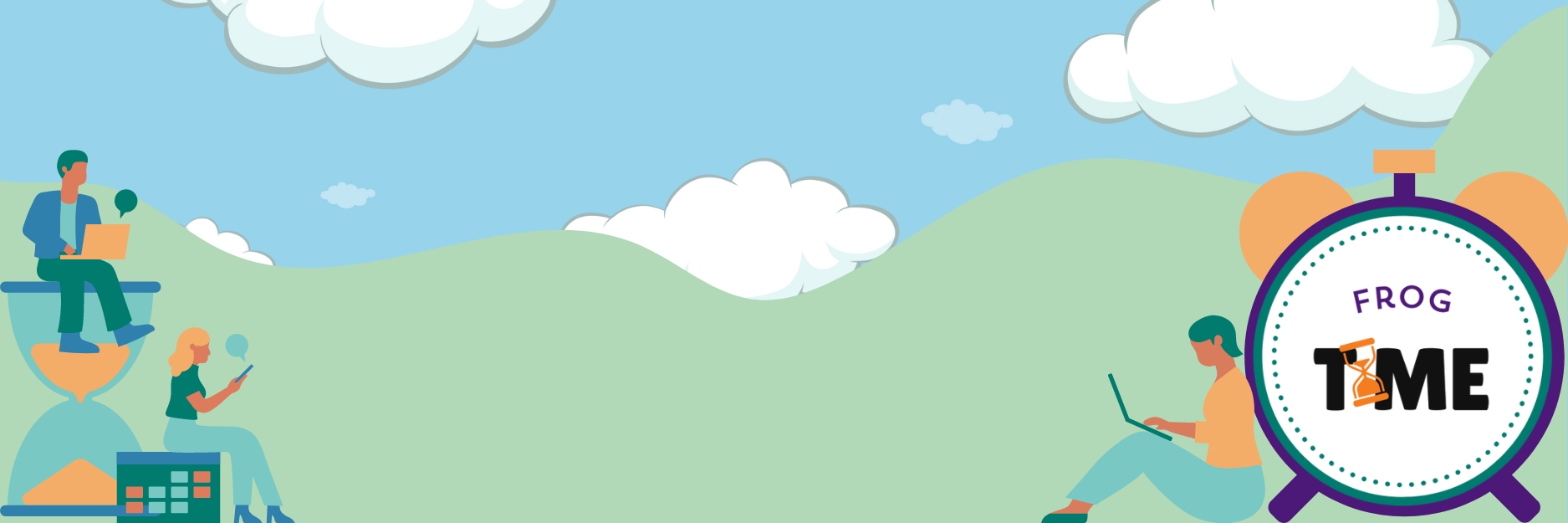 The transition to Frog Time, TCU’s centralized timekeeping system, has been met with
a mix of emotions. While many on campus appreciate the simplicity of digital time
keeping, some may feel hesitant, particularly those accustomed to managing their hours
independently. For employees who have operated without the need to "clock in," this
transition can feel like a disruption to routine or even a challenge to their professional
identity.
The transition to Frog Time, TCU’s centralized timekeeping system, has been met with
a mix of emotions. While many on campus appreciate the simplicity of digital time
keeping, some may feel hesitant, particularly those accustomed to managing their hours
independently. For employees who have operated without the need to "clock in," this
transition can feel like a disruption to routine or even a challenge to their professional
identity.
The Emotional Impact of "Clocking In"
For some, the act of clocking in may evoke frustration, anxiety, or even resentment. Yet, TCU is not alone in implementing a digital timekeeping system. Across higher education, many institutions have already adopted similar practices, and most employers outside academia require employees—hourly and salaried alike—to track their time. As we increase our research portfolio using grants and contracts, using digital timekeeping will streamline our requirement for effort reporting for sponsored research.
It’s worth noting that all TCU student employees already clock in, and many graduates will enter industries where time tracking is standard, such as healthcare, law, finance, supply chain, and education. By embracing Frog Time, TCU staff can model professional habits for students while ensuring accurate and transparent compensation for their own work.
While it may feel like your value is being reduced to hours logged, Frog Time actually reinforces TCU’s commitment to paying employees fully for all hours worked, including overtime. This shift aligns with federal laws and promotes fairness and consistency—a win-win for everyone.
Balancing Flexibility, Autonomy, and Accountability
In the past, some TCU staff members enjoyed flexibility by tracking hours informally, fostering a trust-based dynamic with supervisors. However, such informal systems sometimes lead to employees working unpaid extra hours or exceeding reasonable expectations. Frog Time strengthens boundaries by ensuring all hours are accurately documented and compensated.
Frog Time still supports flexible schedules. For instance, if you work late at a TCU event, you can log those hours and adjust your schedule accordingly within the same workweek. This system allows for transparency and fairness while maintaining departmental flexibility.
By creating a clear record of hours worked, Frog Time can help employees advocate for themselves and set healthier boundaries between work and personal time. This tool also aligns with TCU’s commitment to its values by ensuring employees are properly compensated.
Embracing Change
Change is never easy, as it often requires both mental and emotional adjustments. However, early adopters of Frog Time at TCU have reported positive experiences, citing ease of use and improved communication about work expectations and time management.
Using Frog Time doesn’t necessarily mean physically swiping in and out. Employees can choose the method that works best for them, whether it’s a campus timeclock, a computer, or a personal device. Managers are encouraged to complete Frog Time training, which includes earning a "Frog Time Trained" badge to showcase their expertise.
This transition does not diminish TCU’s collective purpose of serving students. Instead, Frog Time simplifies processes, ensures pay consistency, and strengthens the workplace dynamic.
Next Steps
The final rollout of Frog Time is scheduled for completion by February 2025. Leading up to this, the Human Resources team will provide training to most departments, and resources are already available on the HR Timekeeping page. For questions or additional support, please email hrfrogtime@tcu.edu.
Change may be challenging, but it also presents opportunities for growth. With Frog Time, TCU is taking a step forward to create a fairer, more transparent workplace for all.